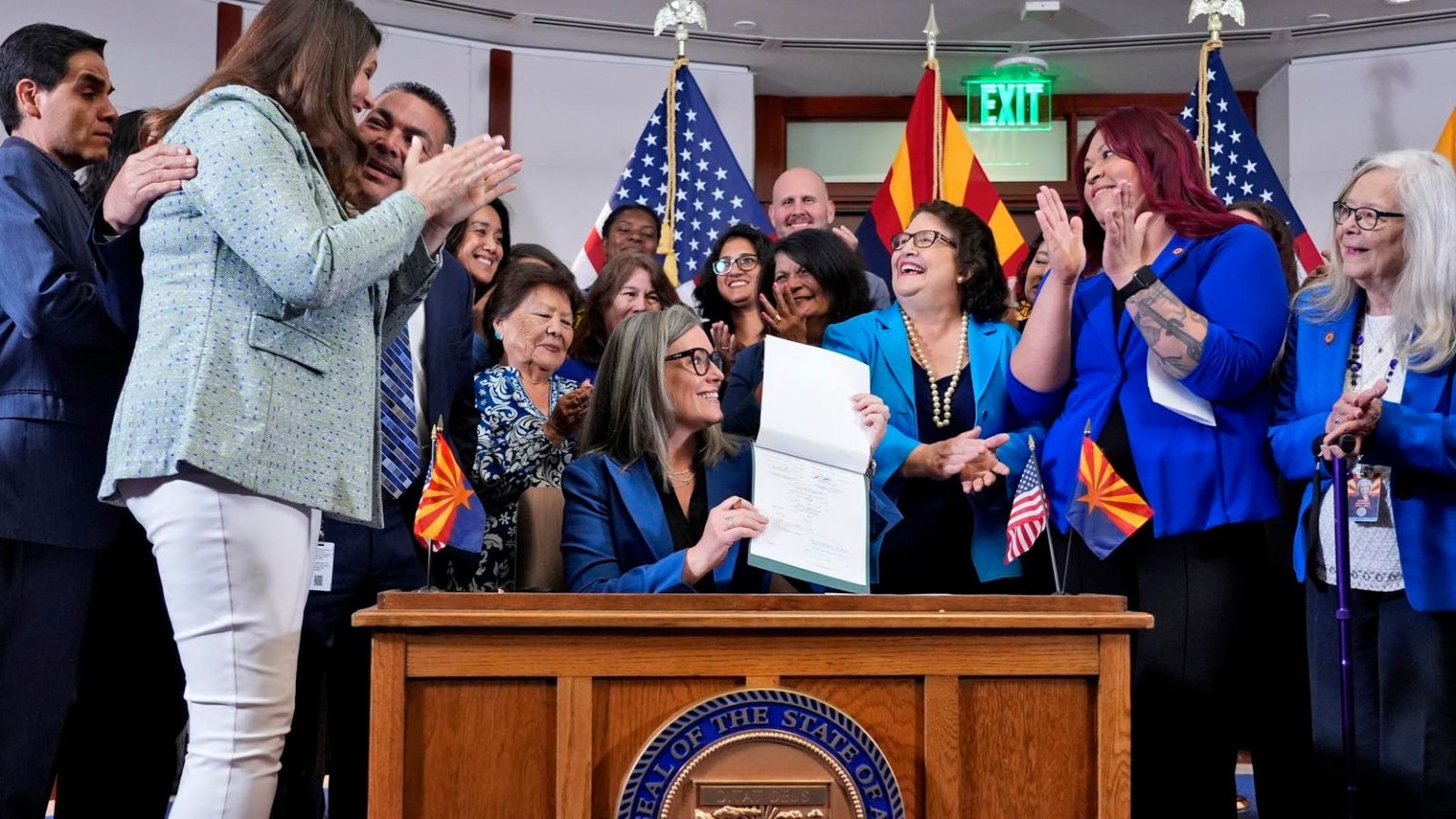Arizona Gov. Katie Hobbs made headlines on Thursday when she signed a bill repealing a near-total abortion ban that dates back to the Civil War era. This decision came after a controversial ruling by the Arizona Supreme Court last month that reinstated the ban, sparking national attention on the state’s abortion debate. Hobbs, a Democrat, emphasized her commitment to protecting reproductive freedoms and trusting women to make decisions that are best for them.
The bill was initially passed by the Arizona House of Representatives on its third attempt, with three Republicans crossing party lines to support it. It then went on to the Senate, where it passed with the help of two Republicans who also crossed party lines and joined 14 Democrats to reverse the ban. The 1864 law enacted a near-total ban on abortion, making it a felony with up to five years of prison time to perform an abortion unless the mother’s life was in danger.
One key question that remains is whether the 1864 abortion ban will be enforced at all. While Hobbs signed the repeal, Arizona’s Constitution states that acts do not go into effect until 90 days after the legislative session ends. With no set legislative calendar in Arizona, it is unclear when the session will end and when the ban will be officially repealed. Once repealed, Arizona’s abortion law will revert back to a ban after 15 weeks with no exceptions for rape or incest.
Hobbs addressed the importance of continuing to work towards protecting reproductive rights, stating that Arizona women are still governed by a ban that lacks exceptions for rape or incest and does not account for complications during pregnancy. She highlighted the need to guarantee access to contraception and IVF, especially as threats to reproductive rights continue to mount. The Arizona Supreme Court’s ruling in April prompted calls from politicians on both sides of the aisle to repeal the ban, with former President Donald Trump urging immediate action and President Joe Biden condemning the ban as cruel.
Looking ahead, attention will shift to whether the state will vote to secure the fundamental right to abortion. Before the Supreme Court’s ruling, a proposed ballot initiative by Arizona for Abortion Access aimed to protect access to abortion in Arizona and had garnered enough signatures to potentially make it onto the ballot in November. The initiative would codify a fundamental right to abortion care until fetal viability, with exceptions to protect the life or physical or mental health of the pregnant individual. As the debate over abortion rights continues in Arizona, the repeal of the 1864 ban marks a significant step in the ongoing battle for reproductive rights in the state.


